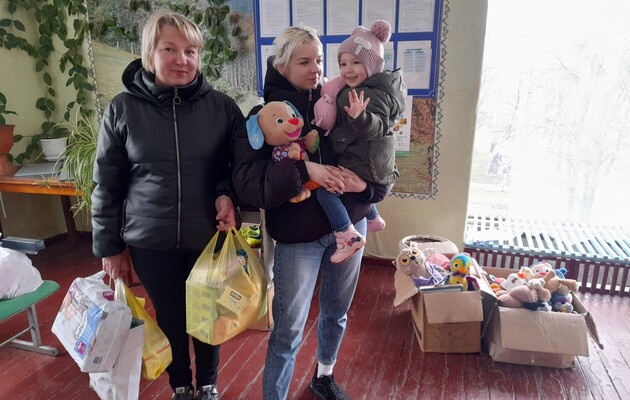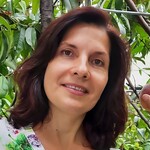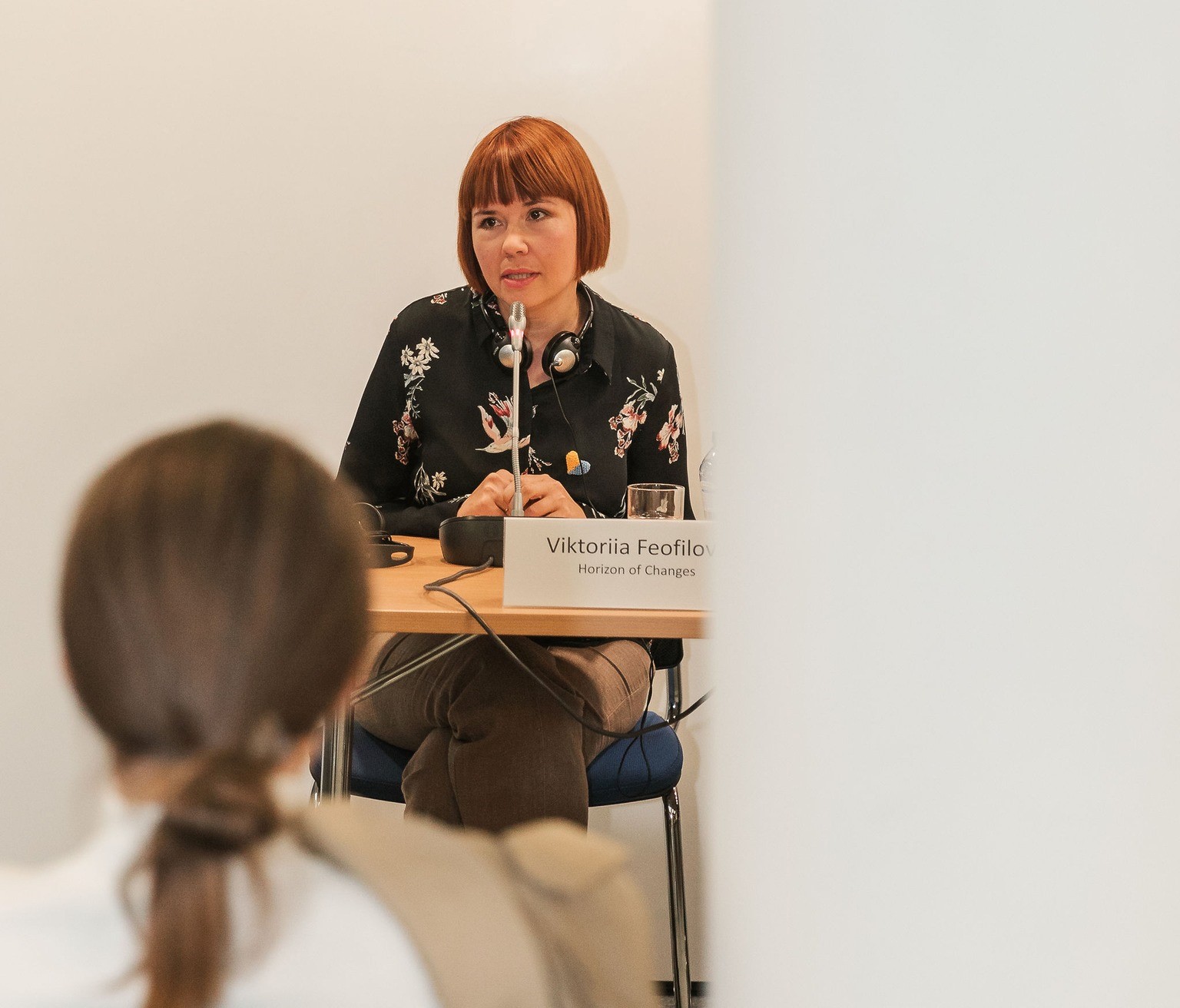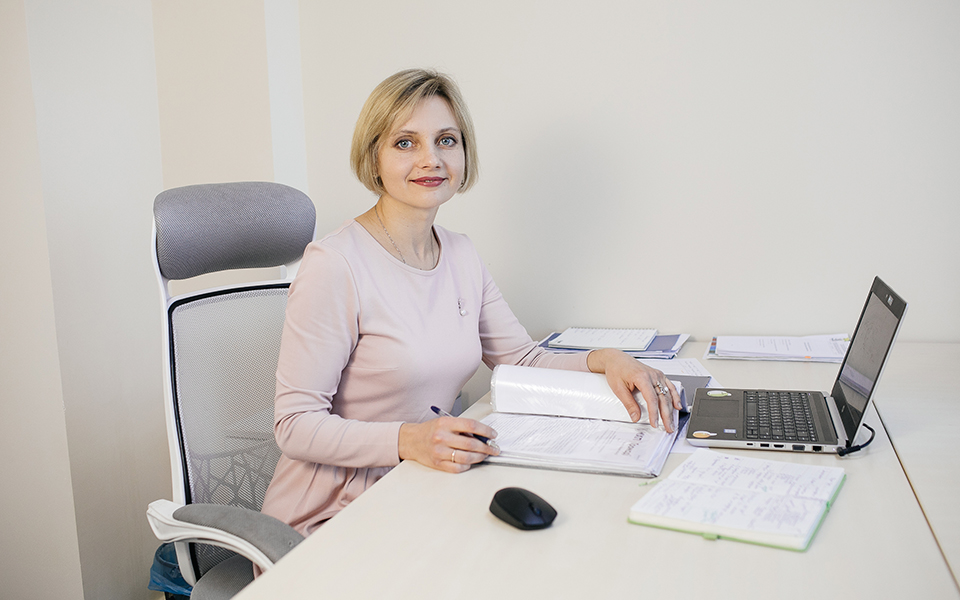I don’t want to be an IDP!

Where to live, where to get money to live on, how I will be perceived, how long I will have to wait to return home and whether I will ever be able to see my home again... I only speak Russian; will they look at me as an enemy or poke fun at me? I don’t want to be some internally displaced person (IDP)! And I don’t want my children to be perceived as IDPs. I want to be a personality, a citizen of my country! I want rockets and bombs not to explode in the country and people not to die...
Unbelievable suffering has befallen Ukraine and the Ukrainians. Especially those who have come face-to-face with the war and its endless horrors. Escaping from near death with a bag in one hand and thank God a living child in the other was a blessing. Pain for a husband who is somewhere in the trenches, but alive... Pain for those who passed to the eternal reward...
As of January 2023, 4,867,106 IDPs were officially registered in Ukraine, and according to international estimates, their number exceeds seven million. Temporary migrants from the front-line territories and territories occupied by Russian invaders come to Prykarpattia, Transcarpathia, Bukovyna, Volyn, Zhytomyr region, unfortunately, not as tourists. It is unknown how long they will stay here. Many of them perfectly understand that there is nowhere to return. At least in the coming years.
They can be given housing, clothes, bread, and money for a certain time and left to germinate. However, what about helping them integrate into the local society, which can become a second homeland? Then an IDP becomes a resource! They bring their knowledge, experience, and projects to the community. They integrate.
This was discussed at the presentation of the study on the integration of IDPs in Ukraine, conducted by the public organization Horyzont Zmin (Horizon of Changes).
According to head of the Horyzont Zmin public organization Viktoria Feofilova, although the basic needs of internally displaced persons, i.e., settlement, food, everyday life, are generally provided, the situation with their integration is far from the same everywhere. Stories of successful integration of the people, forced to change the place of living, exist due to the activity of the public sector and the implementation of projects supported by both Ukrainian and foreign donors.
For example, in Ternopil, a website, a Telegram channel, and a chatbot were created for the displaced, leaflets were distributed near buses and trains, Ms. Victoria said. They immediately began to integrate the newcomers competently and benevolently.
It is important to integrate into society through communication at holidays and other events. For children, the door to society is school. And here the role of teachers is very important.
Still, it also happens like this: they overprovide the refugees with food and clothes, but they fail to come up with any program to help people keep living.
The Ukrainian language courses are really important for immigrants from the east of Ukraine. Almost everyone knows it, but in order to speak, you need to overcome an internal barrier. Meanwhile, language courses do not necessarily have to be in the form of lessons. It can also be an informal training.
“Actually, the language began to unite Ukrainians from East and West, North and South. In communities, many migrants wish to improve their knowledge of the Ukrainian language, and this is an important factor in integration, because the language issue is most often cited as a cause of tension between newcomers and local residents. Positive examples can encompass language courses named Filizhanka Movy Po-Rivnensky (A Cup of Rivne Style Language) providing for certificates of completion, speaking clubs in Ukrainian, as well as watching and discussing films in Ukrainian,” says Ms. Feofilova.
Psychological issues are serious barriers that slow down the integration of IDPs into communities. Moving and living in another place is perceived by many as a temporary phenomenon. People want to return home as soon as possible. Therefore, they do not want to establish any connections in new conditions. Employers are also careful to hire migrants, knowing that they can leave at any moment.
“People hope to return to their homes despite the uncertainty caused by war or occupation. They can consciously or unconsciously ignore all opportunities for integration into the community. They would even resist such options, because psychologically for them it will be a rejection of the dream of returning to their former life,” says Viktoriya Feofilova.
Communities, in order to facilitate the adaptation of forced migrants in communities, should see new opportunities in them – they are taxpayers, workers, and intelligentsia. Many communities have suffered from population outflow. Therefore, its influx should be perceived as positive, she believes.
“It is necessary to restore communities not after the war, but already now. We should create conditions for newcomers to open a business, providing premises for production for a minimal rent; help working parents to register their child in a kindergarten or a school and thus give them the opportunity to study or work. All this in the complex forms a local ecosystem, the results of which will benefit everyone,” says Tetiana Volochai, director of the MHP – Gromadi (MHP for Communities) Charitable Foundation.
To sum it up, according to the research, the main challenges for the integration of internally displaced people in communities are the need to blend into the language environment and the desire of the displaced people to return home as soon as possible. People do not want to be IDPs.
... Still, almost certainly, when the war ends, for someone the place of temporary residence will become a second homeland, for someone it will be a part of life with kind people and good memories...
This problem is not new, it has existed since 2014. At that time, the state did not, in fact, try to integrate IDPs into new living conditions, considering their stay in other communities as temporary: say, people should return home. Meanwhile, without defining any terms regarding when this can happen, and creating many problems with the rules adopted for IDPs. People supported themselves as best they could. Someone was lucky enough to settle in and even succeed in a new place. Someone returned to the front line or even behind the front line — to their native home.
At the end of 2021, the Internal Displacement Strategy for the period until 2024 was approved. But with the beginning of the full-scale Russian invasion of Ukraine, it lost its relevance, and the issue of the integration of IDPs became of paramount importance. There was a need to update, to consider the entire experience and circumstances — from the moment when a person decides to evacuate to their integration into a new community or homecoming.
On February 16, 2023, the draft of the new State Policy Strategy on Internal Displacement was presented to the Ministry of Reintegration. It provides for the five main strategic goals:
— the state’s ability to respond to challenges related to the support of internal displacement;
— safe evacuation of people from dangerous areas, satisfying their humanitarian needs;
— facilitating the adaptation of IDPs at their new place of residence;
— integration of IDPs in new communities;
— support for safe return to their abandoned place of residence and reintegration.
The authors of the study sadly admit, that at the local level, only certain communities manage to systematically cover all these areas.
Read this article in russian and Ukrainian.
Please select it with the mouse and press Ctrl+Enter or Submit a bug

















 Login with Google
Login with Google